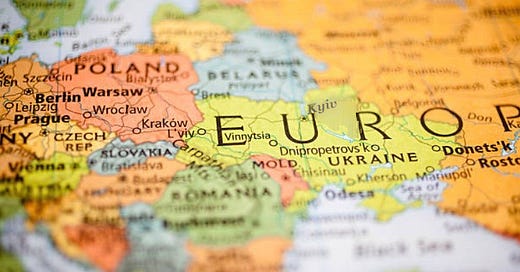Almost eight weeks after Vladimir Putin sent troops into Ukraine, with military losses mounting and Russia facing unprecedented international isolation, a small but growing number of senior Kremlin insiders are quietly questioning his decision to go to war.
The ranks of the critics at the pinnacle of power remain limited, spread across high-level posts in government and state-run business. They believe the invasion was a catastrophic mistake that will set the country back for years, according to ten people with direct knowledge of the situation. All spoke on condition of anonymity, too fearful of retribution to comment publicly. via Bloomberg
The cybersecurity authorities of the United States[1][2][3], Australia[4], Canada[5], New Zealand[6], and the United Kingdom[7][8] are releasing this joint Cybersecurity Advisory (CSA). The intent of this joint CSA is to warn organizations that Russia’s invasion of Ukraine could expose organizations both within and beyond the region to increased malicious cyber activity. This activity may occur as a response to the unprecedented economic costs imposed on Russia as well as material support provided by the United States and U.S. allies and partners. This advisory updates the joint CSA Understanding and Mitigating Russian State-Sponsored Cyber Threats to U.S. Critical Infrastructure, which provides an overview of Russian state-sponsored cyber operations and commonly observed tactics, techniques, and procedures (TTPs). This CSA—coauthored by U.S., Australian, Canadian, New Zealand, and UK cyber authorities with contributions from industry members of the Joint Cyber Defense Collaborative (JCDC)—provides an overview of Russian state-sponsored advanced persistent threat (APT) groups, Russian-aligned cyber threat groups, and Russian-aligned cybercrime groups to help the cybersecurity community protect against possible cyber threats.
U.S., Australian, Canadian, New Zealand, and UK cybersecurity authorities urge critical infrastructure network defenders to prepare for and mitigate potential cyber threats—including destructive malware, ransomware, DDoS attacks, and cyber espionage—by hardening their cyber defenses and performing due diligence in identifying indicators of malicious activity. Refer to the Mitigations section of this advisory for recommended hardening actions. via CISA
Kyiv is moving with increased urgency to save 1,000 civilians who are holed up in a steel plant in Mariupol with the last Ukrainian fighters in the southeastern port city. Ukraine has offered to exchange Russian prisoners for the evacuation of the civilians — and to send senior officials to Mariupol to negotiate — but Moscow has “so far” rebuffed the bid, according to Ukrainian President Volodymyr Zelensky.
The president said fighters in Mariupol need “serious and heavy weapons” to keep up their resistance, but “so far we do not have enough.” Meanwhile, Ukraine’s air force now has at least 20 more fighter jets available after an influx of parts in recent weeks made repairs possible, according to the Pentagon. A third country has offered to send Ukraine fixed-wing aircraft to augment its fleet, though that has not happened yet, a senior U.S. defense official said. via Washington Post
Ukraine's intelligence: Putin plans to carry out forced mobilization in the occupied territories of Zaporizhia and Kherson regions. The Main Directorate of Intelligence of the Ministry of Defence of Ukraine issued a dire warning. According to their intelligence, Putin is planning to mobilize Ukrainians in territory under Russian control to forcibly be sent to the front lines.
He Was a Penniless Donor to the Far Right. He Was Also a Russian Spy.
An investigation in Slovakia has exposed how Russian clandestine operations are trying to sow discord in Europe and create sympathy for Moscow over Ukraine. via NYT
Discussion about this post
No posts







Thank you Olga - top notch aggregation, much appreciated